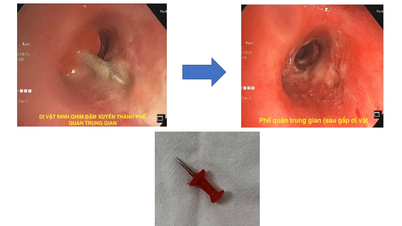Currently, the method of losing weight quickly by applying a one-meal-a-day diet is pursued by many people. Although in fact, people who eat only one meal a day can indeed reduce weight and body fat in a short time, the weight loss effect is obvious, but it can also reduce muscle and bone density, threatening health.

Choosing a weight loss method must consider the impact on overall health (Illustration photo)
Does eating one meal a day help you lose weight?
One meal a day is the equivalent of intermittent fasting, as the total daily calorie intake is reduced it can actually help with short term weight control, significantly reducing both weight and body fat.
However, as soon as you return to your normal diet, the weight will come back, causing many side effects and threatening your own health.
Eat one meal a day, how does the body change?
Affects nutrient absorption
Eating only one meal a day can cause digestive problems, because the fasting period is too long, so it is easy to feel hungry. The next meal cannot control the appetite, leading to overeating, causing abnormal gastric acid secretion, affecting the gastrointestinal motility.
If this condition persists, it can cause serious damage to the stomach, reduce the ability to digest and absorb nutrients, and even cause malnutrition and anemia.
Additionally, eating one meal a day can also reduce muscle mass and function. In addition, long-term inadequate vitamin D and calcium intake can reduce bone strength.
Difficult to maintain in the long term
Most people cannot eat only one meal a day and may give up after 1 to 2 weeks. As soon as you resume your normal diet, your weight will increase again in a short time, affecting your overall health.
Effects on blood sugar control
Most people who are overweight or obese have varying degrees of blood sugar irregularity. Eating only one meal a day can easily cause large fluctuations in blood sugar and affect blood sugar control.
Not eating for several hours can cause blood sugar to drop too low and easily cause symptoms of hypoglycemia, such as inability to concentrate on work, general weakness, hand tremors, and dizziness.
Blood sugar levels increase sharply in a short time after eating, causing a large amount of insulin to be secreted. The elderly, people with diabetes, people with cardiovascular and cerebrovascular diseases should not apply this one-meal-a-day diet.

Successful weight loss requires a scientific and healthy method (Illustration photo)
Wrong ways to lose weight that you need to give up
Snacks, snacks replace normal meals
To control weight, many young people apply a light diet, a type of eating less, reducing key foods. However, there are also foods that contain a lot of calories in snacks such as sugary fruits, salad dressings or sauces.
A cup of salad dressing or dip has the same amount of calories as a bowl of rice, eating fruit instead of staple foods can easily lead to excess sugar, when excess sugar can be converted to fat.
Do not eat starchy foods
Eating little or no starchy foods can indeed cause weight loss in the short term, but it can promote the breakdown of fat and protein in the body, causing muscle loss, slowing down the basal metabolic rate, and can make the body prone to obesity.
In severe cases, it can lead to ketoacidosis.
Special advice: Obese people should develop a suitable diet according to their physical condition to ensure that the total daily calorie intake does not exceed 1,500 kcal.
Of course, you also have to maintain moderate exercises, such as brisk walking, jumping rope, jogging… these exercises can promote fat burning.
Losing weight is a process that requires effort, perseverance and the right method. Lose weight the right way to maintain your dream weight without causing great harm to your health.
Source



![[Photo] Prime Minister Pham Minh Chinh chairs meeting on nuclear power plant construction](https://vphoto.vietnam.vn/thumb/1200x675/vietnam/resource/IMAGE/2025/10/22/1761137852450_dsc-9299-jpg.webp)

![[Photo] Da Nang: Shock forces protect people's lives and property from natural disasters](https://vphoto.vietnam.vn/thumb/1200x675/vietnam/resource/IMAGE/2025/10/22/1761145662726_ndo_tr_z7144555003331-7912dd3d47479764c3df11043a705f22-3095-jpg.webp)

![[Photo] Award Ceremony of the Political Contest on Protecting the Party's Ideological Foundation](https://vphoto.vietnam.vn/thumb/1200x675/vietnam/resource/IMAGE/2025/10/22/1761151665557_giaia-jpg.webp)





































































































Comment (0)